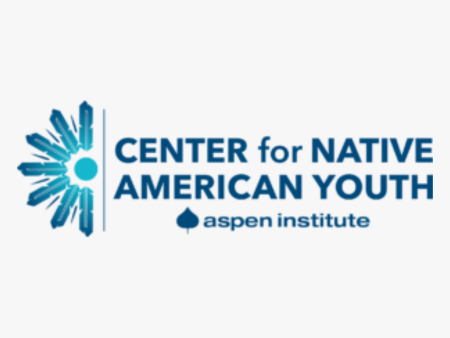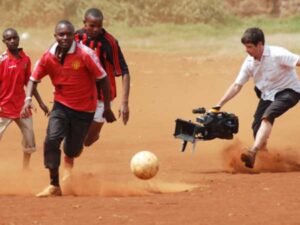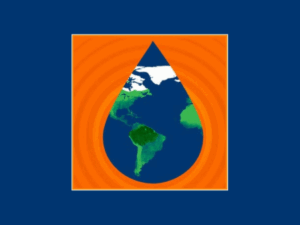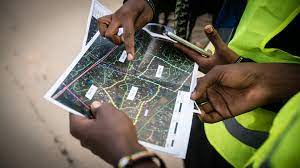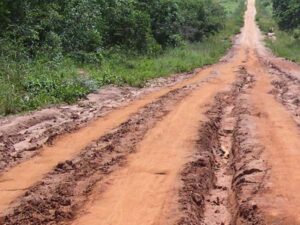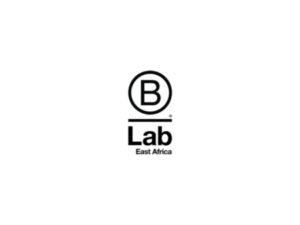The Center for Native American Youth at the Aspen Institute is a national education and advocacy organization that works alongside Native youth—ages 24 and under—on reservations, in rural villages and urban spaces across the country to improve their health, safety, and overall well-being.
Nikki Santos of Center for Native American Youth spoke with Jessica Kantor on January 29, 2024. Click here to read the full conversation with insights highlighted.
Jessica Kantor: Can you introduce yourself, the organization that you’re with, the problem that you’re addressing, and how you’re addressing it?
Nikki Santos: My name is Nikki Santos. I run the Center for Native American Youth. It’s a policy program at the Aspen Institute. We have existed for thirteen years and were founded to address mental health disparities for Native American youth — twenty-four and under — across our country. We do this through culture, empowerment, leadership, and narrative change.
Jessica Kantor: How are you directly engaging with the youth?
Nikki Santos: We run local community-based programs. We partner with tribal colleges & youth centers by running community recognition programs & community leadership programs.
We survey native youth annually to better understand issues they care about; systems or issues that are impacting their well-being. Then, we create programs that are rooted in native culture that address their biggest priorities.
In the last survey we conducted, mental health was at the very top. We also run initiatives to address the missing & murdered indigenous women, increase climate civic engagement from a nonpartisan position, and many more.
All of this is rooted in building up young people & youth power, so they guide our programing: lead us, direct us, and co-facilitate with us. They even help us with our measurements of success. We engage young people from the very beginning. All of our work is grassroots.
Our young people go on to design & lead their own programs; so, the center is really just a vessel and a platform for the change we already know they’re capable of making.
Jessica Kantor: Can you talk a little bit about how you’re engaging with partnerships? And some of the struggles or challenges of working with specific partners?
Nikki Santos: We partner with government, grassroots organizations and national organizations. We also work with tribal councils and congressional offices. Right now, we have a great partnership with the White House; we lead a partnership with White House Tribal Youth Forum & White House Youth Forum. We even have space within the United Nations where we bring youth delegations to New York. We have a spectrum of partnerships.
Some of the challenges have been capacity. We’re a small team, and we can get pulled in a lot of different directions by our different partners, so the organization doesn’t always have the capacity to be fully engaged with all the opportunities available.
A related issue is ensuring that our young people don’t burn out. Our partners offer a lot of opportunities for young people to engage with, but sometimes it may not fully align with their passion or values. Our solution to that is to always bring youth to the table; making sure that in partnerships, our top priority is always centering their voices, solutions, and leadership. If we can align in that, then all of the other stuff is easy work.
Jessica Kantor: How has it been to get partnerships? Are organizations & governments interested in working with you?
Nikki Santos: I would say everybody wants to work with young people. It’s exciting; it makes everybody feel good. But one issue that we’re continuing to come up against is combatting the stereotypes & erasure of native people. This isn’t just within youth space; our society has forgotten native people for so long that they’re unclear on what it means to really include native people. This can be a real challenge: misconceptions, invisibility, stereotypes.
At the Center for Native American Youth, we take on a lot of those issues head on, but that can take a toll on us as native people. Majority of our staff is native, so that can be difficult in a personal capacity to navigate. So, we try to work with other native youth-led organizations that understand our struggle. That way, we don’t have to fight to be seen.
When we partner with like-minded organizations or folks who look like us, it’s a lot easier. But as we move to bigger spaces, we have to navigate how to do that without also having to fight for visibility.
Jessica Kantor: Do you have any ideas on how you might address that challenge and overcome it?
Nikki Santos: Young people tell us it shouldn’t be our responsibility to overcome it; it should be that society stops forgetting us. It should be society doing their own work, their own education of indigenous histories. I think that’s one of the solutions.
Instead, we very much lead from a space of hope, empowerment, and positive change. So really, our solution is just to lead with positive stories. Sure, we can talk about the disproportionate rates of XYZ in native youth, but I’d rather tell you something really amazing that our young people are doing for their communities. We reframe and reclaim narratives to something more positive. That’s at the heart of how Center for Native American Youth addresses the issue.
If we talk about positive things, their story goes further. It touches more people. It ignites more hope that encourages more people to want to get involved & support the good work.
Jessica Kantor: What do you think makes your approach distinctive?
Nikki Santos: We have a youth advisory board that guides all of our programming.
For example, we wanted to create a fellowship called “Remembering Our Sisters” which addresses missing and murdered indigenous women. Young people guide our curriculum, recommend speakers, and provide feedback.
That’s how we run all of our programs. What makes us unique is the amount of intentionality we have with youth really leading the work. We really trust youth and provide them with as many opportunities to lead as possible.
We never try to mold or shape their truth, rather we encourage them. Another unique approach is everything we do is rooted in our indigenous culture. We start every fellowship, every convening with ceremony to make sure we’re rooted in cultural groundings. We lead by our indigenous values.
Jessica Kantor: Are you finding that youth are ready to come in and take charge? Or do they need a little bit of training and inspiration before they’re ready?
Nikki Santos: It’s a little bit of both. Some youth are ready while other young people are still struggling to believe that their voice matters. So, we’re making sure that we’re creating a space for wherever they are in their leadership journey. We are very intentional about being inclusive of all native youth and their varying lived experiences.
For example, we have a fellowship for native youth who have lived experience in foster care. A lot of them have never even been in a courtroom — even for their own case — fighting to stay with their native family. So we build up their public speaking skills & advocacy skills though cultural groundings — like their belonging; they belong with us as their community.
We have mental health interventions with native psychologists that are there to guide & support them. We’re inclusive of different lived experiences — gender expansive, tribal expansive. We work from state recognized tribes, self-identified, not just within the United States. Even if they’re indigenous from another country, we’ll bring them into our programming.
Jessica Kantor: Can you share an example that illustrates the impact of your work?
Nikki Santos: During the pandemic, one of our initiatives was Democracies Indigenous.
Basically, it helped native youth lead in engaging their communities. From tribal elections, local elections, state elections, all the way to national, federal & beyond. We were working with a youth from Alaska who didn’t believe his community cared about voting. In the middle of a global pandemic, their attention was on how they couldn’t access their traditional foods.
That youth saw the connection between access to food security & elections. For example, if somebody tries to take away their fishing rights, it’s their responsibility to educate their policymakers. We could see the throughline he was trying to make, but really, he wanted funding for a fishing trip so he could catch enough fish to bring back to his community members that could give them access to traditional foods.
Though there was some hesitancy on staff, our values are that we put young people first. We needed to trust him. And of course, he was right. We trusted him. And with hundreds of pounds of smoked fish, he went door to door offering each home enough salmon for the winter and asking, “By the way, are you registered to vote?” It’s become a stable program that he runs annually — Operation Fish Drop. He has spoken on many stages about the importance of food security and how that plays into policy.
We have a fund that supports youth to run their own initiatives. He was clear in what he was envisioning. He gave us a budget — which every young person who applies does — and shared the narrative of the change he hoped to create. We trust that our youth knows their community best, so we work to provide resources & financial support for them to take initiative in impacting their communities.
Another story was also during the pandemic. We partnered with the United States Census to make sure that people were counted since native people are historically undercounted in the United States census — which impacts federal funding that goes into tribal colleges, education, the Department of Interior, and many more things. So, we provided microgrants for our youth to get involved in making sure their communities were counted.
A native girl from Washington State went door-to-door with food baskets for elders and offered to help them complete their census. For the first time in history, the Quinault Indian Nation got 100% counted. She received a letter saying it was, in part, because of her efforts.
Knowing that a young person made sure that her community was counted was really powerful; investing and creating the change to be accurately counted that combats our invisibility was a really proud moment for us.
Jessica Kantor: What are some of the success metrics that you guys are tracking?
Nikki Santos: We have a new logic model, and its indigenous metrics of success. A lot of it is perceptions of belonging & perceptions of voice with regard to their evolving narrative about their belief in their abilities to make change and be a leader.
We also do community-based participatory research to ask how a particular individual has changed & bettered the community. We put all of that into a metric that reflects the change not only in the young person, but also how they’ve impacted their communities through their leadership. All of this is rooted in native values.
Jessica Kantor: What are the success metrics that you track with regard to your microgrants and funding youth initiatives?
Nikki Santos: We want to make sure that it’s really youth leading the initiative. We want there to be engagement with the community, but ensure that adults in the community don’t try to dictate the direction of their work. We support them by connecting them to narrative opportunities — local newspapers, broader media — so there’s a metric for narrative shifting.
We also measure their perceptions; whether they believed they could make the change, whether they perceived the change, whether they could’ve done this work without our financial support. That’s how we’re able to link our support to the changes they’re making.
Again, we use community-based participatory research. We ask broader members of the community, at random, about the intervention. That’s how we’ve been able to measure the successes of youth initiatives.
We’re really starting to see the needle moving — whether it’s increasing native voters, civic engagement, addressing climate, the missing & murdered epidemic, combating mental health disparities, or increasing educational opportunities. There are so many possibilities & solutions being led by young people through our work.
Jessica Kantor: What type of systems change are you working towards? Can you talk a little bit about maybe some of the positives or the challenges that you’ve faced with that?
Nikki Santos: A lot of our systems work is rooted in this core fundamental truth that native youth are forced to navigate a system & a world that was not designed for their success. We see that through erasure and history — through race-based mascots, lack of representation in education systems and more.
In response, we’re cultivating spaces led with native values that normalizes accepting our full selves rooted in culture. We are relatives first. We lead in ceremony; we speak words of kindness towards one another that build each other up. We normalize what it means to cater to the mind, the body, and the spirit. When we’re talking about systems change, it first starts with the self.
As I talked about earlier, our organization really takes the brunt of the hits of a system — systemic inequities & systemic failures — that native people have had to experience. We have had to come out with a lot of statements. For example, we sat with the CEO of the Washington football team with data that shows the implications of what race-based mascots have on mental health & wellbeing of native youth in order to pressure them to retire their mascot.
We take on those fights so our young people don’t have to… that’s a big part of our work. CNAY is trying to educate systems, but we also want native youth to unapologetically have their own systems that are rooted in indigenous values. Native youth have told us that when it comes to suicide prevention and drug & alcohol prevention, the biggest factor for them is their culture.
Systems change is healing work.
Jessica Kantor: Can you talk a little bit more about your Missing Indigenous Women Initiative?
Nikki Santos: That program came to be after we surveyed native youth about priorities they care about; addressing violence against native women was one of them.
It’s something my colleagues and I talk about frequently even outside of work. Native women are exhausted by the disproportionate numbers of our community members going missing. It’s unacceptable. Having the data show that young people care about this too, we created a program called ‘Remembering Our Sisters’ that received seed funding & has been sustainable for the past three years.
The program is rooted in native youth being centered & having a leading role in addressing the missing & murdered indigenous women epidemic through digital arts & storytelling. It’s a six month fellowship where we connect them to communication professionals & policymakers.We partner with Spotify, Comcast, and Universal to help them learn how to make a podcast, make a website, make toolkits — create whole social media campaigns. It’s a really cool and unique way for the youth to utilize tech in a way that addresses the epidemic.
We also do systems work by partnering with Abigail Echo Hawk of Urban Indian Health Institute, who talks about how the data that exists within the Federal Register is inaccurate. We know there are many more missing. We also know there are more murders than what the Department of Justice is counting because some are inaccurately ruled as suicides.
A lot of these girls prefer to stay behind the scenes because it’s their family members that are missing; their sisters still active cases. There’s a lot of systems work to do, but having young people lead on an issue that is so personal to myself and our community is really powerful.
Jessica Kantor: Are you watching True Detective Season 4? In regards to not only indigenous representation but also the show putting a spotlight on an indigenous woman who is murdered, what do you think of HBO doing that and how they’re doing it?
Nikki Santos: I love it. I have a lot of friends from Alaska, and [before the show came out] I remember them saying, “Oh, I’m a consultant now with HBO.” Behind the scenes, they did a lot of homework, and having a very diverse indigenous advisory group to help lead in the work is so beautiful. Even the episode about the tattoos, the markings, it’s so cool. They’re doing it right. And for HBO, like I said, mainstream media, it’s really, really amazing. The fact that [the main actress] Evangeline, she’s native, she’s from the East coast somewhere, and I actually put a note, we should reach out to her to talk to the girls. I think it’s so powerful, and I hope that it also puts pressure where pressure is needed to address the epidemic [of murdered indigenous women].
Jessica Kantor: That’s good to hear, that you also personally know people who are being spoken to, to make sure that they’re representing everything accurately.
Nikki Santos: Yeah, even down to the jewelry. Several girls I follow on Instagram, they were like, “I can finally share. I was commissioned to make the earrings that, so-and-so is wearing on this episode tonight.” It’s actually made by the Inupiaq people or Cupid people. It is just really, really cool.
Jessica Kantor: What are some lessons or insights that you think are particularly important to share? Either for people who are also doing work with indigenous peoples, or others who are trying to work with the community?
Nikki Santos: There’s an infamous quote on social justice by Glenn E. Martin, “People closest to the problem are closest to the solution,”
In whatever movements folks are working on and working towards, it’s important to make sure that those who are most impacted have a space at the table. Not just as an advisory counsel, but really in the weeds of doing the work alongside them.
That’s why we are so intentional about making sure that native youth are leading, guiding, and evaluating our work. We are merely a vessel in leveraging our privilege we have for native youth. When it comes to native communities, you need to make sure there’s space for healing & that culture is always centered.
Jessica Kantor: When you’re talking about lack of representation, lack of respect of indigenous values, lack of availability of resources — part of the problem is the surrounding community of non-indigenous people. I know you said earlier that youth believe it’s not their role to have to educate people & change their perspectives, but how are you working with or addressing that?
Nikki Santos: Like I had said, I met with & hand-delivered a letter to Dan Snyder about the impacts of the Washington football team’s race-based mascot. I’ve also sat as an indigenous advisor & participated in focus groups on creating the new mascot. There are spaces that we are helping support that kind of change.
Another example is our environmental justice work with Braveheart Fellowship. It’s indigenous knowledge & indigenous solutions that address climate change, but it’s strategically placing them in predominantly white institutions & predominantly white climate spaces.
Conversation is led by the outdoor industry & white male conservationists. So, native youth are stepping up to share what’s working in their communities; though we make up a small percent of the population, we’re protecting 80% of the world’s biodiversity — rivers, lakes, mountains and more. It gives them a lot of leverage.
Part of how we do systems change is giving native youth a bunch of tools in their toolbox and putting them in societal spaces where not a lot of people look like them. Equipped with words & tools, they’re out there getting society to reckon with the truth about the importance of inclusion of indigenous solutions to address the climate crisis.
We also publish a lot of issue papers that also provide resources, not only for the youth in our networks, but concerned community members who also want to have a role in systems change work.
Jessica Kantor: What does the next five years look like for you?
Nikki Santos: I think we’ve really spent our initial decade creating best practices on how to engage with native youth & support youth movements.
Now, we are working towards a global indigenous forum for native youth. We brought a delegation to Rome for the United Nations Indigenous Youth Forum, and we’ll be doing that again in New York for the Global Indigenous Peoples Forum.
The next five years is really going to be about building coalitions with indigenous youth both globally and domestically to build that collective power. We’re also partnering with organizations like Citizens University & will hopefully have a democracy forum before the 2024 election. That work is really rooted in young people and what they’re doing to build trust within our current political climate.
We’re also doing a lot of coalition building with other youth organizations from all walks of life — all demographics, all gender expansive, all education backgrounds — so more youth have the opportunity to build collective power. That’s something we’re really excited about.
Jessica Kantor: Are there other organizations doing similar work as you, or are you guys unique in that space?
Nikki Santos: We’re pretty unique. Even though we’re an Aspen Institute Policy Program, we find ourselves to be more grassroots, and I think that’s also a huge part of our success. We build trust within native communities because we’re pretty much all native. We’ve lived our lives as part of those communities and work with the native youth in our own communities.
Jessica Kantor: Thank you for talking with me today.
Click here to read the full conversation with insights highlighted.
Jessica Kantor is an independent journalist specializing in health, human rights, and social impact. Her work can be found in Fast Company, Healthcare Quarterly, The Las Vegas Review-Journal, and others. She is a living kidney donor.
* This interview has been edited and condensed.
Find other social innovation organizations working with indigenous populations.

